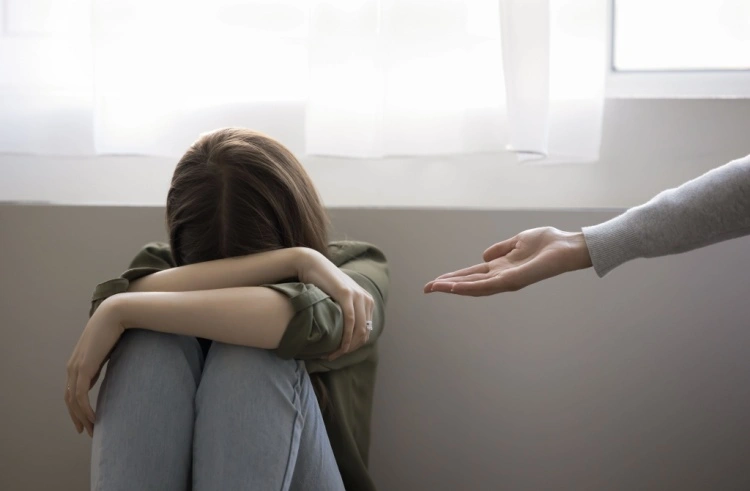Quick Facts on Anxiety Disorders
- Types of anxiety disorders: Generalized anxiety disorder, social anxiety disorder, panic disorder, obsessive-compulsive disorder, specific phobias, separation anxiety disorder, agoraphobia
- Causes for anxiety disorders: Genetics and family history, stressful life events, chronic illness or heart problems, being young and female, having a substance use disorder
- Symptoms of anxiety disorders: Rapid heartbeat, panic attacks, irrational and excessive worrying, intense fear, headaches, dizziness, trouble sleeping, weight loss or gain, loss of appetite, hot flashes, shaking, numbness or tingling in hands and feet, dry mouth, difficulty concentrating
- Long-term side effects of anxiety disorders: Strained relationships with family and friends, difficulties in school or at work, sleep problems, worsening of physical symptoms and effects, trouble completing daily activities, development of physical illness, heart problems
- Effective treatments for anxiety disorders: Behavioral therapy, inpatient treatment, outpatient treatment, support groups, anti-anxiety medications, psychotherapy, stress management classes, self-help
Types of Anxiety Disorders
There are numerous types of mental health disorders classified as anxiety disorders, all of which share certain characteristics of excessive worrying and stress.
Generalized Anxiety Disorder
Generalized anxiety disorder is the most common type of anxiety disorder and often affects people in the long term.
Someone can develop this disorder at any age or point in life, but it often starts in children and teenagers and can then carry into adulthood.
Signs and symptoms of generalized anxiety disorder include:
- Indecisiveness
- Difficulty in situations that are uncertain
- Overthinking
- Disproportionate worrying
- Difficulty relaxing
- Being frequently on edge
- Nervousness and restlessness
Everyone experiences these feelings from time to time during periods of stress.
However, someone with generalized anxiety disorder will experience them most of the time and for several months at a time.
Panic Disorder
Someone who has a panic disorder experiences recurrent and frequent panic attacks, and spends the time in between panic attacks living in fear of the next one.
Someone with other types of anxiety may also have panic attacks occasionally, but not with the same frequency as a person with panic disorder.
Signs and symptoms of a panic attack include:
- Increased, rapid heart rate
- Shortness of breath
- Chest pain
- Cramping
- Nausea or vomiting
- Sense of impending doom or dread
Agoraphobia
A type of anxiety disorder that is characterized by a fear of places or situations that cause a certain kind of discomfort — feeling out of control, helpless, embarrassed, and without escape.
Agoraphobia is often misunderstood as a fear of open spaces, but it is a fear of any type of environment that causes these feelings. This can include open spaces but also public transportation, crowded gatherings, or standing in lines.
People with severe agoraphobia may have trouble leaving their homes without a companion, often for fear they might have a panic attack if faced with a trigger.
Other Anxiety Disorders
In addition to generalized anxiety disorder and panic disorder, there are several other types of anxiety disorders that can make daily life difficult to manage.
Other types of anxiety disorders include:
- Social anxiety disorder: a type of anxiety that is similar to a social phobia in which a person’s anxious thoughts involve social situations, self-consciousness, and interacting with other people.
- Specific phobias: phobias are an irrational fear of a specific object, place, situation, or animal. Examples of phobias include a fear of spiders, a fear of elevators, and a fear of holes.
- Separation anxiety disorder: a form of anxiety when a person has trouble being away from a specific other person, usually their parent or caregiver. This type of anxiety is more common in children and young people.
- Illness anxiety disorder: sometimes referred to as hypochondria, a person with this type of anxiety often believes they are sick or severely ill when in reality they are not or are only mildly sick.
- Obsessive-compulsive disorder (OCD): a person with this disorder will find themselves caught in a cycle of obsessions and compulsions, as well as having intrusive thoughts related to them.
- Selective mutism: a very rare type of anxiety disorder that usually affects young children and which is characterized by a child’s inability to speak in certain situations or environments after facing a trigger.
What Causes Anxiety Disorders?
There are many known potential causes for anxiety, and it is not always easy to pinpoint an exact cause or causes for someone’s anxiety, as there are often multiple reasons.
Risk Factors for Anxiety Disorders
Some of the biggest risk factors for anxiety involve external life events or stressors, although genetics can play a role just as they play a role with depression and other mental disorders.
Risk factors for anxiety disorders include:
- A family history of anxiety
- A recent stressful life event
- A recent traumatic event or abuse
- Having a medical condition, particularly one heart-related
- Abusing drugs or alcohol
- Being female
- Being a teenager or adolescent
Symptoms of Anxiety Disorders
The symptoms of anxiety disorders may vary slightly depending on the specific disorder, but are similar among most affected people and only change by the situation or trigger.
Symptoms of anxiety disorders include:
- Nervousness and restlessness
- Increased heart rate
- Shortness of breath
- Feelings of panic or fear
- Chest pain
- Difficulty concentrating or focusing
- Dry mouth
- Heart palpitations
- Excessive sweating
- Insomnia or other sleep problems
- Nausea and vomiting
Effects of Untreated Anxiety Disorders
When anxiety is left untreated, people continue to feel its effects, which only become worse and more amplified over time.
Effects of untreated anxiety disorders include:
- Worsening of a current disorder
- Formation of a new or co-occurring disorder, such as depression
- Difficulties performing at school or work
- Physical illness or health problems, particularly involving the heart
- Chronic stress
- Chronic fatigue
Treatment for Anxiety at Mark Behavioral Health
You can find several different types of treatments for anxiety at Mark Behavioral Health, as well as treatment options for many mental health conditions.
Residential Care
Mark Behavioral Health has a primary focus in providing quality residential treatment to those who are in need of an intensive level of care for severe anxiety or depression.
During a residential stay, you will have access to a variety of therapies and support services, top-quality onsite amenities, and nutritional counseling.
Crisis Stabilization and De-Escalation
Crisis stabilization can be an important part of treatment for anxiety, as someone experiencing a severe panic attack or anxious episode is the perfect candidate for de-escalation.
Our crisis stabilization services allow you to de-escalate in an environment that may feel more safe, warm, and understanding than a traditional hospital setting.
Behavioral Therapies
Mark Behavioral Health offers both cognitive behavioral therapy (CBT) and dialectical behavior therapy (DBT), with CBT being particularly effective when treating anxiety disorders.
CBT is effective in that it helps you to understand your thought patterns and triggers and how these thoughts and feelings translate into outward behaviors.
Trauma-Informed Care
Mark Behavioral Health also offers trauma-informed care, which studies have shown to be beneficial to both patients and health care providers.
Among the benefits of trauma-informed care are a lowered risk of retraumatization, improved engagement with patients, and an increased sense of safety and comfort during treatment.
Therapy for Grief & Loss
Anxiety is often the result of specific triggers which can develop after stressful life events, one of the most stressful of which can be the loss of a loved one.
Because of this, Mark Behavioral Health offers therapy for grief and loss as a major component for anyone going through our residential program for anxiety.
Specialized Wellness Services
Our specialized wellness services are focused on teaching people self-care and relaxation techniques that can aid in your overall well-being.
These services can also reduce your risk of physical illness and promote healthy lifestyle changes that you can adapt into your own life when treatment is over.
Top Resources for People Facing Anxiety
There are additional resources available for people who are battling anxiety, as well as resources for their loved ones who are hoping to understand and help them.
Top resources for people facing anxiety include:
- Active Minds — an organization that provides numerous programs that serve teens, adolescents, and young adults who are coping with depression, anxiety, and other mental health disorders.
- Anxiety and Depression Association of America — this website provides information to those who are living with anxiety or depression, live webinars, a place to share personal stories and a treatment locator by demographic or disorder.
- Mental Health America — one of the biggest and most well-known mental health organizations in America, this group offers an abundance of resources for education and advocacy, as well as a free mental health screening test.
- Substance Abuse and Mental Health Services Administration (SAMHSA) — this government organization provides information on both mental health disorders and substance use disorders, and a national mental health treatment locator.
Get Specialized Treatment for Anxiety Disorders in Florida
Living with an anxiety disorder can be painful and debilitating, but it doesn’t have to be.
With the right help and compassionate treatment, you can learn to manage and live with your anxiety, and even experience prolonged periods without stress.
At Mark Behavioral Health, we are dedicated to helping people in South Florida to heal themselves, enhance their overall wellbeing and mental health, and find new meaning in their lives.
Please reach out to us when you are ready to get started in treating your anxiety disorder.


